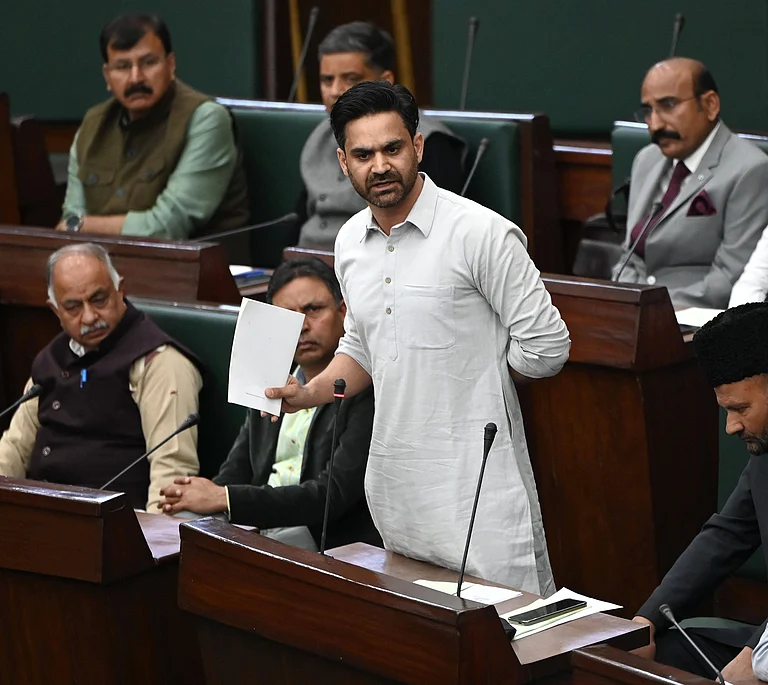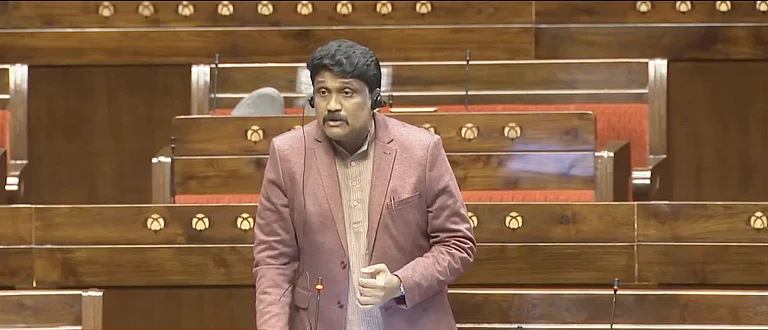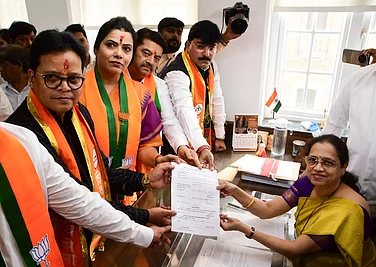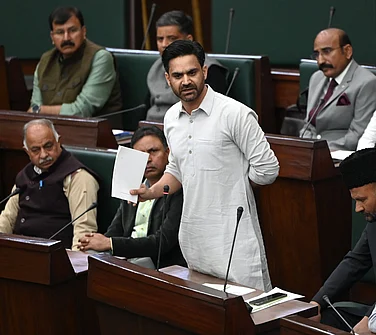ON the eve of the BJP's national executive at Goa, a fundamental breach in approach was brought into relief. In contrast to his party's desire to call the aiadmk's bluff, A.B. Vajpayee was clearly inclined not to go for the jugular just yet. To be sure, many believed he could no longer ignore how partymen felt on keeping the 'insolent ally' on board. But his surrender in the face of the infamous "within an hour" threat spoke volumes. And as the meet began on April 2, Vajpayee's line seemed to have prevailed amid much gnashing of teeth by party faithful.
That is, till more worrying news trickled in from Chennai in the evening. The aiadmk wasn't finished just yet. It was to go into a general council meet—though disclaimers were issued that "nothing explosive" was expected and it was all "media hype". Earlier, leading lights of the party insisted the "tremors" (of the "political earthquake" engendered by the Jaya-Sonia meet in Delhi) were continuing. And that it was not enough for the PM to distance himself from Kumaramangalam's attack on their leader—he would have to do more than merely saying it was a "personal opinion".
At this point, the BJP's restive section began piling on the pressure again. By late Friday evening, BJP leaders were sounding far more aggressive and at their head L.K. Advani, hinting at a post-Jaya scenario, told the media that "given the numbers in the Lok Sabha, even a minority government could only be headed by the BJP". Vajpayee, Jayalalitha willing, may still prevail, of course.
In fact, Advani was only reiterating the original plan of action formulated in the wake of Jaya upping the ante during her Delhi visit. At any rate, it was a far cry from the scenario in the morning, when BJP chief Khushabhau Thakre called the war of words "a closed chapter", and even a reluctant Kumaramangalam "clarified" that what he'd said about Jaya having "no credibility" was his personal view.
The fact is that a chunk of the BJP and allies had decided that it is time to strike at the root of the problem. The formula was simple: jettison Jaya and hazard a go at the uncertain fruits of minority status. Though the PM's aides were confident that the allies would eventually do what Vajpayee says, as was proved by their conciliatory statements on April 2. Sources in the BJP say Kumaramangalam's statement was part of a careful plan: to let Jayalalitha do the running and push the alliance to the brink—which she did during her Delhi visit most emphatically. This would, as Advani has said in the past, engender sympathy for the BJP. Then, take a clear stand against her "constant threats and theatrics" and garner some respect. For refusing to be pushed beyond a point and being patient yet affirmative when it counted.
Says a cabinet minister: "If she backs down well and good. If she doesn't, the government has a fair chance of surviving. And if it falls, so be it; at least the party will be in a better position to face polls." What's left unsaid, say critics, is the real payoff for the hardliners: "cleaning up" the organisation, sticking to only trustworthy allies and facing the next election minus Vajpayee, who would be held to his word that the '98 election was his last.
Sources say things would have gone to plan with Jayalalitha's Delhi visit, but for Vajpayee putting a spoke in the wheel with a "humiliating climbdown". The aiadmk response to the Kumaramangalam dare, say party strategists, was to have been quelled firmly. And if the aiadmk was serious about withdrawing support, Vajpayee would be asked to preempt that by handing in a letter to the president saying he had the support of 260-odd MPs (minus the aiadmk's 18). "Later, when budget session resumes, he could tell the Lok Sabha that technically he heads a minority government but is confident that he had the support of the House," added sources.
However, Vajpayee is acutely conscious that it's his government after all. In fact, the aiadmk threat itself cited the fact that "a section of the BJP and allies were determined to bring down the government". An accurate articulation of the Vajpayee dilemma. Playing on his suspicions of the 'enemies within' while patronising his instinct for survival. His aides and family members are known, in fact, to have warned him against "walking into a trap" and pleaded that he runs the government as long as possible.


























